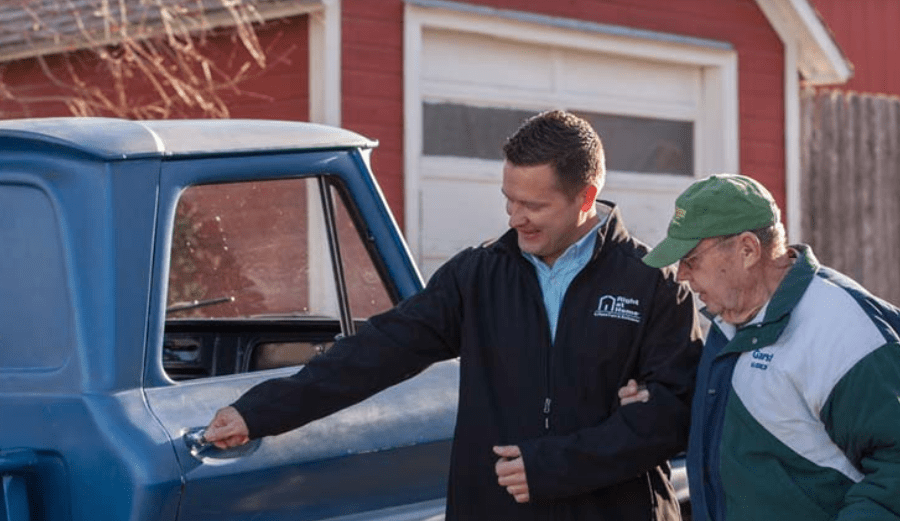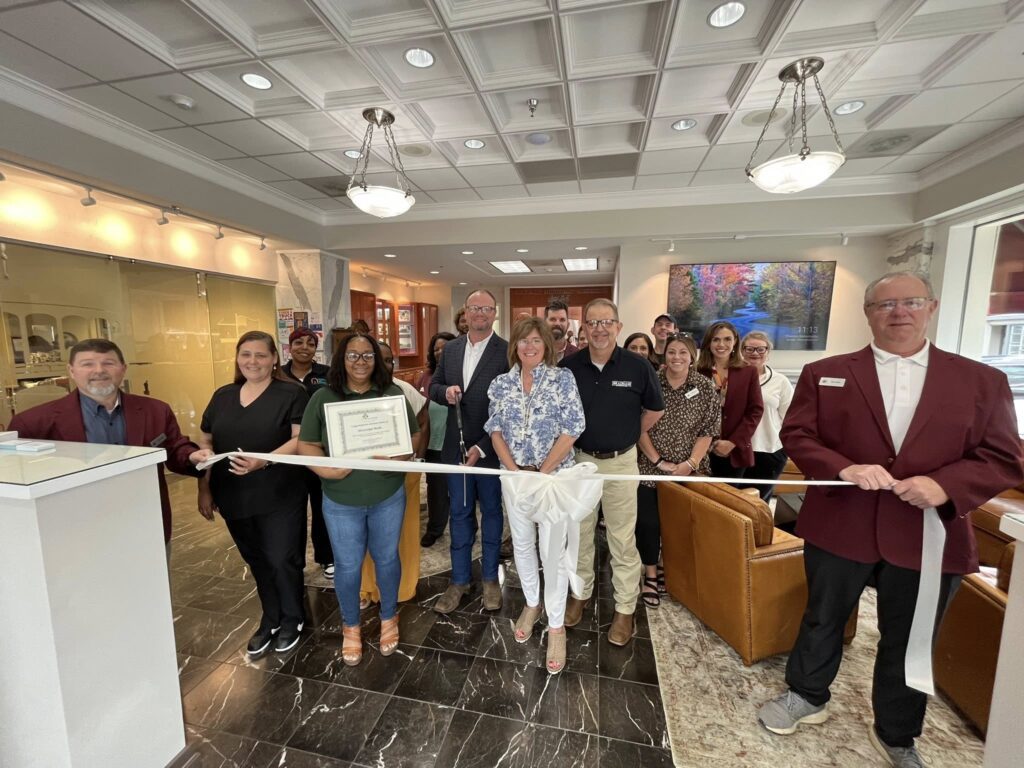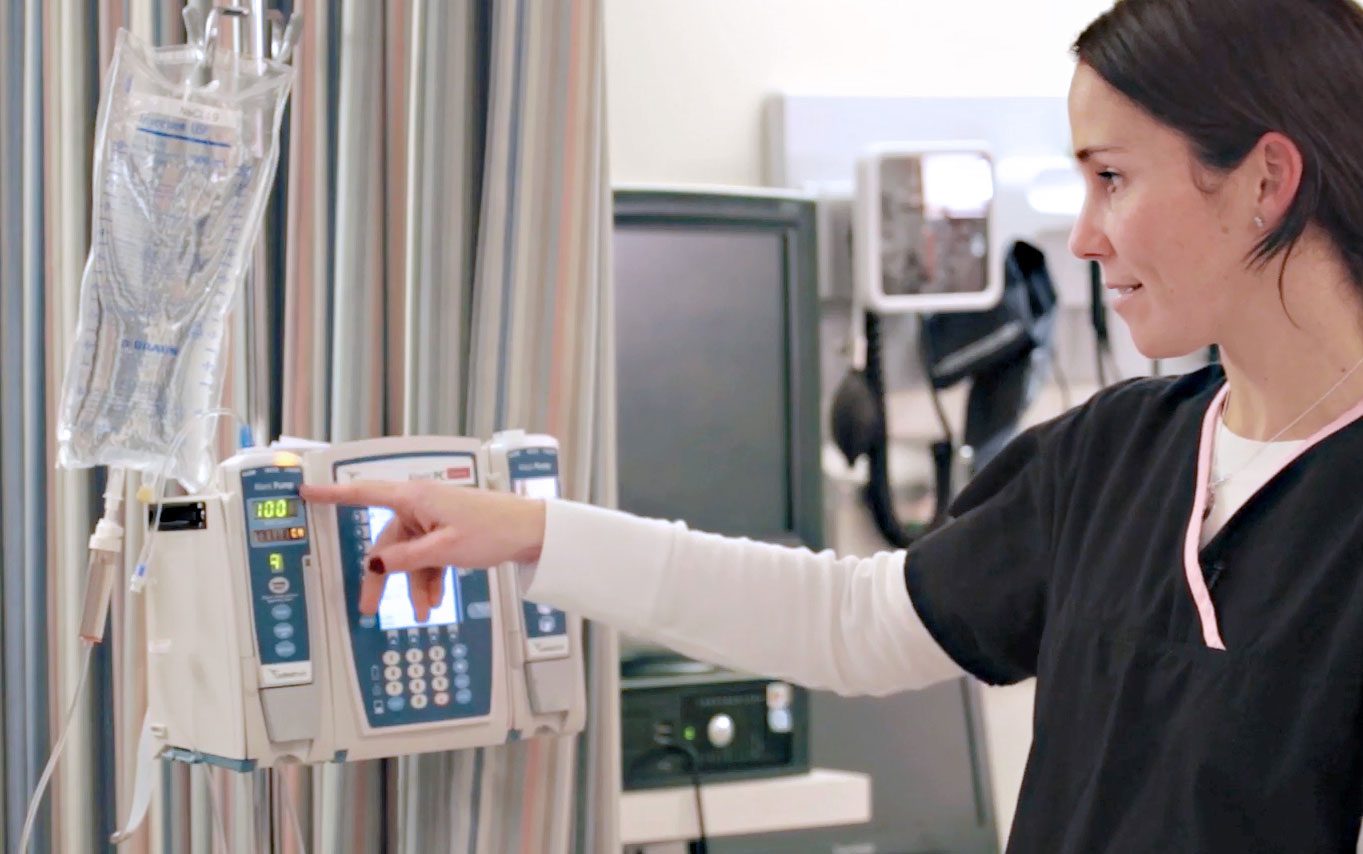
(Photo from Right at Home website)
- Bradham candidly discusses home care industry trends.
Will Bradham, a longtime Mississippi business leader, recently acquired his second territory for Right at Home, a franchise home care business.
Right at Home is now available in the Golden Triangle, which covers Columbus, Starkville, and West Point. The office opened March 12 in Starkville. Bradham is looking to expand Right at Home to Ridgeland before August.
“My passion for in-home care stems from personal experience,” said Bradham. “My father required around-the-clock support during his battle with lung cancer.”
Bradham’s dad, Jimmie “Red” Bradham, received training in mechanics through the Air Force. When he returned to the U.S., he worked for a large tractor distributorship as a mechanic and eventually opened his own automotive parts store. He died in 1998, when Bradham was 19.
“My dad was ultimately an entrepreneur,” said Bradham, who was a regional manager at a food distribution company before franchising. “I felt burned out with corporate America and wanted to do my own thing, too.”
In 2012, Bradham opened Right at Home in Cleveland. That service area now covers the Mississippi Delta and North Mississippi towns of Alligator, Batesville, Clarksdale, Horn Lake, Lyon, Marks, Olive Branch, Oxford, Rosedale, Sardis, and Walls. Recently, his Right at Home franchise won a national client satisfaction award.

Magnolia Tribune asked Bradham, whose staff hovers around 300 employees, about trends in home health care, which is fraught with many challenges: staff shortages and high turnover rates, rising operational costs, regulatory compliance and documentation, limited access to training and professional development, and communication gaps between caregivers and family.
What’s the greatest factor that’s most recently affected staffing for home health care?
COVID-19 regulations drove a lot of people away from health care, and they went to jobs that weren’t requiring all the covid restrictions and mandatory vaccinations. We don’t have as bad a problem as some, due to our pay scale and quality work environment, but you’re not going to find anywhere in this country where the number of health care professionals isn’t a problem.
What other factors are contributing to the staffing challenge?
We’re covering over half the state now, but you do find (staffing challenges) in less populated territories or markets. It affects every industry you know, with health care already having some issues and lack of quality state vocational programs, especially high school programs.
If you start really diving into health care, from a statewide perspective, the (people in the) Division of Mississippi Medicaid (DOM) and some of these other groups aren’t dumb, and one of our largest line-item budgets in Mississippi is health care. We’re seeing a trend where our federal government is trying to keep people healthier. There’s a reason behind that. One of the motives is we want healthy people, but the other motive is that most of our health care systems can’t handle much more. They just don’t have the facilities. They just don’t have the staff. That’s where companies like mine step in. We’re there to keep people healthy and in a clean and safe environment. That’s our aim and it helps lower re-admission rates. It’s a win win.”
Again, until we start putting some emphasis and money into our public education, public school systems, to show young men and women that opportunities out there don’t involve a two-year or four-year degree and can be a fulfilling job. Home health aides would be a big void we could and should fill. The next generation is crucial to this. And there’s just, there’s no emphasis on it from a statewide level.
A lot of providers are out there, and I’m not saying we get it right 100 percent of the time, but we’re better than most, or we wouldn’t be as big as we are.
What’s been the best method of recruitment for your company?
I’d say word-of-mouth. We’ve been doing this for 13 years, and people know we’re a stable company. That’s it to me. There are companies that do similar work that have trouble paying their employees on time. Surprisingly, I never thought it would be a selling point, that we’re going to pay you on time.
Your Right at Home franchise was recently recognized as one of the nation’s top client satisfaction-recommended companies. Can you share more about that?
When we got the award, you could kind of read the room … everybody looks around and goes, Mississippi? I mean, it’s just the middle of nowhere. Mississippi has gotten national recognition, and it‘s a big deal for us. I’ve always said the best referral we can get is from a current patient or patient’s family.
Will it be difficult to staff the new territory?
We’ve done a great job so far. It’s been a great move for us, and we’re looking at expanding more. I’m not going to be satisfied until we’ve got employees and clients in almost every county in the state. That’s my mission. I mean, that’s what we’re shooting for – and my whole team understands that. But, yeah, we’re fishing in a very, very, very small pond.
We’ve got to separate ourselves from the competition as to why they should come work for us, but it doesn’t address the whole problem.
Why is unreliable cell service in the Delta such an issue?
Our employees don’t branch from offices; they leave from their homes. So, communication is probably more important than anything we do and being able to communicate with our caregivers if they’re sick or if a client isn’t where they’re supposed to be.
Within our own company, we have our own apps and systems and protocols. If an employee can’t get logged in via cell service, it’s really tough to keep track of everybody. If you’re in a rural market or poor cell service area, they can’t clock in to our systems to show that they’re there. I wish we had (service) that was a bit easier to access.
What about Starlink?
I personally use Starlink because it’s the best option out there for me for traveling. I can’t afford to pump that out to almost 300 people, right? I wish I could provide that technology, but it’s just not … it’s not feasible.
You take any situation, if you’re dealing with the elderly and disabled population, and they fall in the middle of the night, or something else happens, they could go a day or two without having anybody even enter their home – especially as the state doles out the allotted frequency of our caregiver visits.
A lot of these (spotty) areas are also more metropolitan – you can drop cell service quickly. I mean, it’s a problem everybody has.
What’s next for you with Right at Home?
I want to continue expanding and providing our services to as many people as possible in Mississippi. I want to bring our top-tier service to a wider audience.











